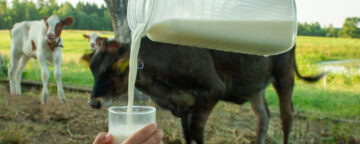A new APPC survey finds a small but significant drop in public willingness to recommend the MMR vaccine to someone in their household.


A new APPC survey finds a small but significant drop in public willingness to recommend the MMR vaccine to someone in their household.

By a 2-1 margin, Americans are more likely to accept guidance on vaccine safety from the American Medical Association (AMA) than the Centers for Disease Control and Prevention (CDC), an Annenberg survey finds.

According to a new Annenberg Public Policy Center survey, most people are uncertain about which vaccinations are safe and recommended for pregnant people.

An APPC survey finds that, despite potential bird flu contamination, many Americans do not know that raw milk poses greater health risks than pasteurized milk.

An APPC survey finds that RSV vaccines to protect older adults and newborns have become more widely accepted by the public over the last year.

A comprehensive meta-analysis from a research team led by the University of Pennsylvania examines what types of vaccine intervention strategies have the greatest effect in increasing vaccination.

New survey shows over a third of U.S. adults worry that they or someone in their family will get flu, Covid-19, or RSV in next 3 months, but no consensus on which virus is more likely to cause severe illness.

Americans have less confidence in vaccines than they did just a year or two ago, and more people accept misinformation about vaccines and Covid-19, according to an APPC health survey.

There is wide variability in what the U.S. public knows about the seasonal flu and Covid-19, but some facts are much more strongly associated with an individual’s vaccination behavior, Annenberg surveys show.

The policy center's spring 2023 ASAPH report finds that women of childbearing age are more likely than other adults to doubt the safety of vaccination against Covid-19 and flu during pregnancy.